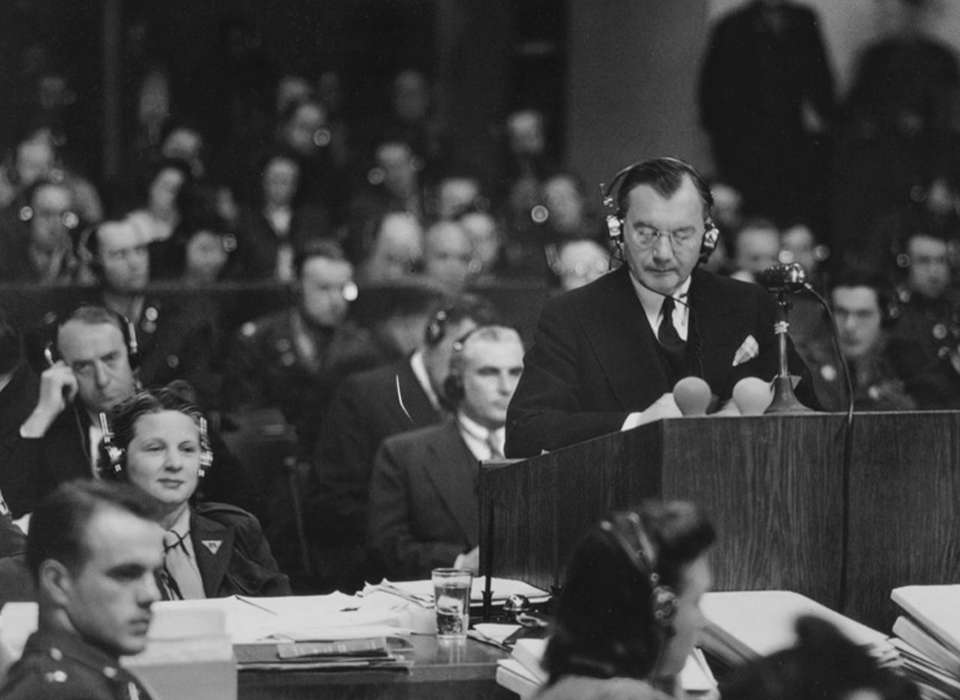The Nuremberg Trials were a pivotal moment in history, as they marked the first time individuals were held accountable for crimes against humanity on an international scale. Held in Nuremberg, Germany, from 1945 to 1946, the trials prosecuted key leaders of Nazi Germany for their roles in the Holocaust and other war crimes. The prosecution presented evidence of Nazi atrocities, leading to the conviction of 12 defendants, with others receiving prison sentences. The legacy of the Nuremberg Trials is significant, as they established the principle of holding individuals accountable for crimes against humanity, laying the foundation for future international tribunals to prosecute war criminals and ensure justice for victims.
The Nuremberg Trials: Holding Nazi War Criminals Accountable for their Crimes
The Nuremberg Trials were a series of military tribunals held after World War II to prosecute prominent leaders of Nazi Germany for their roles in the Holocaust and other war crimes. The trials took place in the city of Nuremberg, Germany, from November 1945 to October 1946 and marked the first time in history that individuals were held accountable for crimes against humanity on an international scale.
The Background of the Trials
Following the end of World War II, the Allied powers – the United States, the Soviet Union, Great Britain, and France – agreed to hold a trial to prosecute key leaders of the Nazi regime. The Charter of the International Military Tribunal (IMT) was drafted to establish the legal basis for the trials and define the crimes that would be prosecuted. The IMT charged 24 of the most prominent Nazi officials, including Hermann Goring, Rudolf Hess, and Joachim von Ribbentrop, with crimes against peace, war crimes, and crimes against humanity.
The Prosecution
The prosecution at the Nuremberg Trials was carried out by an international team of lawyers from the four Allied powers. The chief prosecutor for the United States was Supreme Court Justice Robert H. Jackson, who delivered the opening and closing statements at the trial. The prosecution presented evidence of Nazi atrocities, including the Holocaust, the systematic extermination of six million Jews and millions of others deemed to be undesirable by the regime.
The Defense
The defendants at the Nuremberg Trials were allowed to choose their own defense attorneys, some of whom were former members of the Nazi Party. The defense argued that the charges against the defendants were politically motivated and that the Tribunal had no legal basis to try them. However, the Tribunal rejected these arguments and proceeded with the trial.
The Verdict
On October 1, 1946, the Tribunal delivered its verdict, finding 12 of the defendants guilty of one or more charges and sentencing them to death. Three defendants were acquitted, while the remaining nine received prison sentences ranging from 10 years to life. The most prominent Nazi official, Hermann Goring, committed suicide the night before he was scheduled to be executed.
The Legacy of the Nuremberg Trials
The Nuremberg Trials set a precedent for international justice and established the principle that individuals can be held accountable for crimes against humanity, even if they were acting on behalf of a government. The trials paved the way for the establishment of the International Criminal Court and other international tribunals that prosecute individuals for war crimes and genocide.
In conclusion, the Nuremberg Trials were a landmark event in the history of international law, serving as a reminder of the horrors of the Holocaust and the importance of holding perpetrators accountable for their actions. The trials were a crucial step towards ensuring justice for the victims of the Nazi regime and establishing a framework for prosecuting war criminals in the future.
